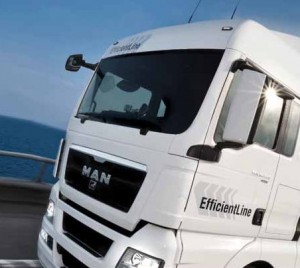 The auto industry in Europe is at a critical juncture. On the one hand, it benefits from the strong current and projected growth in motor vehicle sales globally, particularly in the BRIC countries and other emerging markets. On the other hand, it faces a difficult situation on its home market.
The auto industry in Europe is at a critical juncture. On the one hand, it benefits from the strong current and projected growth in motor vehicle sales globally, particularly in the BRIC countries and other emerging markets. On the other hand, it faces a difficult situation on its home market.
While it plays a crucial role in the European economy and society at large – amongst other things by providing employment to more than 2.3 million people directly and another 10 million indirectly and by investing over Euro 26 billion in R&D annually – the auto industry faces various challenges in Europe that threaten its future global competitiveness.
These include a strained market, significant pressure on sales, overcapacity for some manufacturers and markets, a high cost base, increasingly stringent and costly legislation, growing competition from imports and, ultimately, low profitability.
The European Automobile Manufacturers’ Association (ACEA) has appealed to political leaders at EU and the national level to recognise these issues and acknowledge that they should be addressed by each stakeholder individually and, where appropriate, through concerted action.
The Association has proposed the following action plan:
Vehicle manufacturers
Each individual vehicle manufacturer is responsible for dealing with the challenges faced and finding adequate individual solutions to the particular individual situation. Innovation, quality, customer service, research & development and a global market strategy are the main drivers for remaining competitive in the market.
Individual vehicle manufacturers are also responsible for restructuring their operations in Europe to the extent that they consider this necessary. If and when this occurs, they should individually prepare and implement plans for adjusting their production capacity to current and expected future demand in accordance with the laws and procedures of the member-States concerned, including funding for severance payments and social plan expenses.
While ACEA calls for the understanding of, and acceptance by policy makers of the need to reduce production capacity in specific cases, it explicitly requests the use of taxpayers’ money to fund any capacity adjustment plan that a vehicle manufacturer might decide to carry out.
National authorities
National, regional and local authorities of the member-States concerned should make use of the instruments at their disposal within the existing State aid framework. In addition, they should engage in discussions with social partners with a view to improving labour flexibility (annual work accounts, fixed-term and agency work, downtime subsidies, etc.); propose measures to mitigate the social consequences of restructuring taking place on their territory, particularly with regard to retraining, reskilling and relocating affected workers; and notify these measures to the European Commission.
EU institutions
In order to provide an effective European solution, the European Commission should play a co-ordinating role by bringing together all relevant stakeholders and ensuring that their respective actions complement and reinforce each other.
In addition, it should:
– Examine State aid measures adopted by member-States without delay.
– Make available the funds at disposal (European Globalisation Adjustment Fund, European Social Fund and European Fund for Regional Development) for retraining, reskilling and relocating affected workers and assisting the affected regions.
– Bring together national authorities and social partners with a view to exploring ways to improve labour flexibility without distorting competition between member-States.
– Actively support the development of new technologies for future environmentally-friendly mobility.
– Explicitly acknowledge and support the heterogeneity of the European auto industry which includes manufacturers of small passenger cars as well as premium cars and commercial vehicles.
– Provide an effective EU-wide framework to foster investments in R&D and innovation.
– Increase R&D funding for the auto sector within the next framework programme “Horizon 2020” and through the European Investment Bank.
– Together with member-States provide for the necessary political, legislative and financial framework to further improve the quality of education, increase access to educational opportunities, notably at the tertiary level, in order to supply the industry with a highly skilled and specialised workforce.
– Launch special programs to increase the number of students enrolled in fields of education where the auto industry faces or will face shortages such as engineering, informatics, computer sciences and natural sciences.
– Together with member-States, assess the cumulative impact on the auto sector of the existing and possible future free trade agreements and conclude new agreements with India, Japan or other major automotive countries only on the basis of full reciprocity with respect to the elimination of tariffs and non-tariff barriers in the auto sector.
Finally all stakeholders should, collectively and within their respective areas of responsibility, systematically and fully implement the recommendations of the CARS 21 final report. In doing so, they should ensure that the EU regulatory framework contributes to maintaining and strengthening a competitive auto industry in Europe.